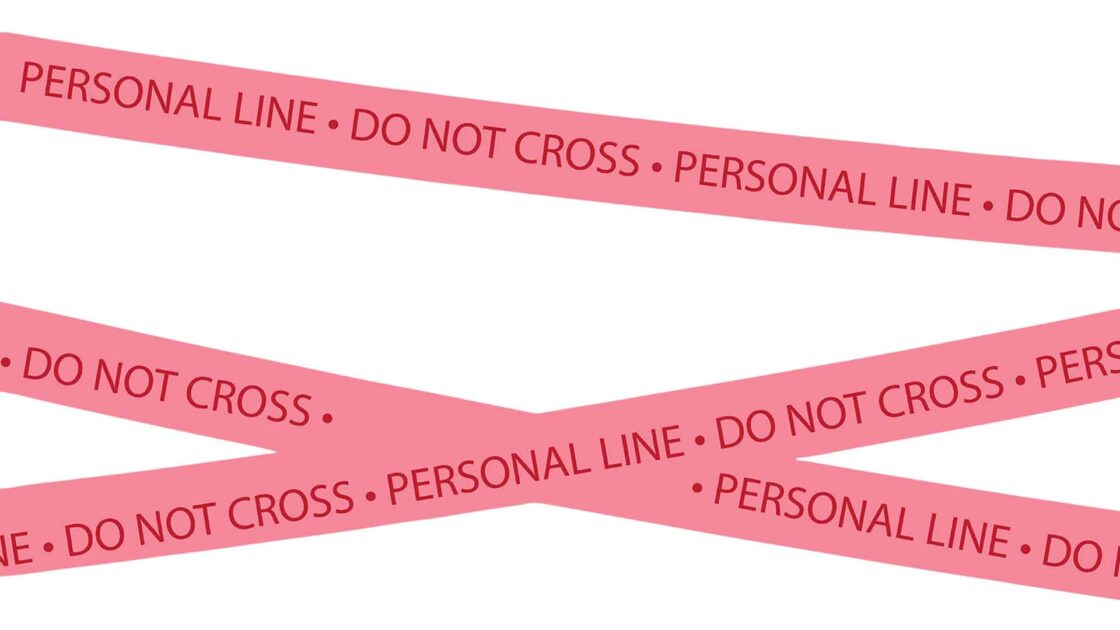What is sexual harassment?
Sexual harassment includes any unwanted sexual contact, comments and gestures

There are many types of behaviour that can be classified as sexual harassment. Sexual harassment is unwanted contact that can be spoken, done through gestures, touching and online, that is of a sexual nature. Sexual harassment can often be something which has been normalised in certain environments such as work or within certain social groups and therefore those experiencing it may find it difficult to speak out against it or to recognise that that treatment is wrong.
If you experience treatment of a sexual nature that is unwanted and makes you feel uncomfortable this is sexual harassment and you do not have tolerate it. If it takes place at work or while you are using a service (eg a café, library, concert, hospital), your employer or the service provider are obliged in law to protect you from sexual harassment. It is also important to remember that sexual harassment can be experienced by and from a person of any gender.
What is sexual harassment?
Examples of sexual harassment include:
Unwanted physical contact
Unwanted physical contact can come in many forms. If you are at work and a colleague or boss or customer touches you in an unwanted way such as to rub your shoulders or back this can count as sexual harassment. If someone presses up against you or stands unnecessarily close to you this can also be sexual harassment. Some forms of sexual harassment, including attempted sexual harassment or continuous and persistent behaviour might amount to the criminal offence of sexual assault.
Unwanted sexual requests or comments
Unwanted sexual comments can include someone making jokes or sexual innuendos, someone asking you about your sex life or telling you about theirs or making sexual comments about how you look and dress. If someone, in a situation in which you do not want, asks you to have sex with them or requests sexual favours from you this can count as sexual harassment. Someone asking for a kiss, hug or massage in a situation that is unwanted such as work, school or on a night out is also sexual harassment.
Unwanted gestures or stares
If someone makes sexual gestures towards you such as thrusting, licking their lips or winking this can also be a form of sexual harassment. Staring at someone or looking them up and down in a sexual manner can also count as sexual harassment.
Other examples of sexual harassment:
- Some other examples of sexual harassment can include someone referring to someone else in an inappropriate way such as “babe” or “love” in a professional environment
- Someone cat calling, whistling or making kissing sounds at a person
- Someone spreading lies about a person’s personal or sex life
- A person giving you personal, sexual or romantic gifts in an inappropriate situation, such as a colleague in work or a lecturer
- Repeatedly asking someone out who is not interested or asking someone out in a situation where the person feels they cannot say no, such as a boss asking out their employee
- Sending a person naked photos or sexual messages without their permission
- Sending or showing a person pornographic pictures without their permission
- Stalking someone
- Taking or sharing photos or videos of someone without their permission
I am being sexually harassed at work, what can I do?
It can be very difficult and even frightening to do something about sexual harassment regardless of where it takes place. People in positions of power can often abuse their authority as they think that those they are in charge of will be too afraid to report the harassment they are experiencing. This power can be because someone is senior but it can also be based on their gender, size, popularity, numbers etc. People sometimes find themselves feeling shame about what has been done to them, remember the shame belongs entirely to the person doing the sexual harassment, not to the victim.
Who can I speak to about sexual harassment in the work place?
It is important if you are experiencing sexual harassment that you speak to someone about it. If it is in the workplace see if there is anyone you feel you can trust to bring your problem to. Your workplace should have a Dignity at Work Policy which will suggest who you can approach. You can also approach the Irish Human Rights and Equality Commission for information about your right to a workplace or service free from sexual harassment and advice about what to do. If there is no one in work that you can speak to share what is going on with a family member or friends. Remember that if you are being sexually harassed it is never your fault and you should not feel ashamed or blame yourself.
What can I do if I am being sexually harassed?
If you are being harassed, bullied or intimidated by someone or a group of people:
- If you feel comfortable doing so and there is no danger to you, let the person harassing you know that their behaviour is unacceptable
- If it is online block them and report them
- If it is taking place in work report the harassment to a manager, the Human Resources Department or someone in authority
- Some organisations also have staff who have been trained to support a colleague experiencing harassment or bullying
- If a boss or senior is harassing you then make the complaint to somebody else in charge
- Speak to someone you trust about what is happening
- Keep a journal as record of the sexual harassment you are experiencing
- If the harassment continues make a formal complaint to your workplace or company, write a letter of complaint with details of the harassment and make sure to keep a copy
If you need to, speak to a medical professional or support service to help you during this difficult time. The impact of sexual harassment can be quite severe. The National Sexual Violence Helpline is there for people experiencing sexual harassment, and Rape Crisis Centres provide counselling also.
What is the law in Ireland on sexual harassment?
Under the Employment Equality Acts 1998-2015, sexual harassment and harassment of an employee (including agency workers and trainees) in the workplace are against the law. This includes sexual harassment and harassment by:
- co-workers
- the employer
- clients, customers or other business contacts of the employer, including anyone the employer could reasonably expect the worker to come into contact with
The Employment Equality Act is not a criminal law. The Act puts responsibility on an employer or service provider to protect the employee or service user from sexual harassment but if the employer fails to do so they will not face criminal charges. Instead the person who was sexually harassed could take a case against their employer or the employer of the service they were using to the Workplace Relations Commission or a civil court.
Outside of the work place there is no specific law in relation to sexual harassment but there is a law relating to harassment. The Non Fatal Offences Against the Person Act 1997 made harassment a crime. Harassment is legally defined as any act or contact that is unwelcome and is offensive, humiliating or intimidating to a person, this means that sexual harassment comes under this law as it is a form of harassment.
Who can I go to for advice?
Need more information?
We are here to answer your questions and talk through your options. Our online chat service is for 16 to 25 year olds and is available Monday to Friday, 4pm to 8pm. Chat to us now about your situation.
- Chat now to a trained Youth Information Officer
- Or leave us a message and we will email you back





